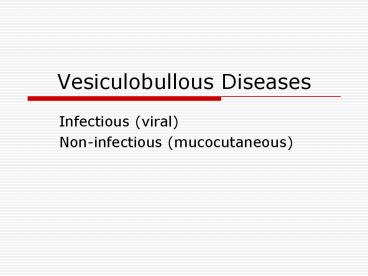Estimated reading time: 0 minutes
Vesiculobullous diseases, characterized by the formation of blisters on the skin and mucous membranes, encompass conditions such as Pemphigus Vulgaris, Bullous Pemphigoid, and Dermatitis Herpetiformis. While genetic and environmental factors are well-recognized contributors to these diseases, stress is increasingly acknowledged as a significant trigger for flare-ups. Understanding the relationship between stress and vesiculobullous diseases is paramount for effective disease management and enhancing the well-being of patients.
Stress’s Impact on Skin Health
1. Stress and the Immune System: Stress can profoundly affect the immune system, resulting in heightened inflammation and potentially initiating autoimmune responses. This is particularly pertinent in autoimmune vesiculobullous diseases, where the immune system mistakenly targets healthy skin cells.
2. Hormonal Changes: Stress prompts the release of hormones like cortisol and adrenaline, which can disrupt normal physiological responses and potentially worsen skin disorders.
3. Stress and Skin Barrier Function: Chronic stress can impair the skin’s barrier function, rendering it more susceptible to irritation and inflammation, which can exacerbate vesiculobullous diseases.
Stress as a Precursor to Flare-ups
Individuals with vesiculobullous diseases often report that periods of high stress can precede or coincide with flare-ups. Clinical studies support these observations, suggesting a direct connection between stress and disease exacerbation.
Stress Management for Enhanced Disease Control
1. Stress Reduction Techniques: Incorporating stress reduction techniques such as mindfulness, meditation, and yoga can aid in managing the psychological burden of living with a chronic skin condition.
2. Counseling and Support: Psychological counseling and support groups offer coping strategies and emotional support, which can prove invaluable in handling stress and its impact on the skin.
3. Regular Exercise: Engaging in regular physical activity can lower stress levels and bolster overall well-being, potentially reducing the frequency and severity of flare-ups.
4. Healthy Lifestyle Choices: Ensuring adequate sleep, maintaining a balanced diet, and abstaining from tobacco and excessive alcohol can also contribute to stress reduction and its effect on vesiculobullous diseases.
Future Avenues of Research
Ongoing research endeavors seek to deepen our understanding of the mechanisms by which stress influences vesiculobullous diseases. This encompasses investigations into the impact of stress hormones on skin cells, the role of the nervous system in skin inflammation, and the means by which psychological stress modifies immune function.
Conclusion
The association between stress and flare-ups in vesiculobullous diseases underscores the significance of a comprehensive approach to treatment that addresses both physical and psychological facets. Effectively managing stress can significantly impact disease control, enhancing not only skin health but also the overall quality of life for patients. As our comprehension of this relationship advances, it may pave the way for more targeted interventions to assist patients in effectively managing both stress and their skin condition.
Related-
Know More About Ayurveda Treatment For skin Dermatology.
GET IN TOUCH


Recent comments